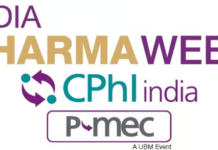Sydney, July 04, 2015 – The world’s top pharmaceutical companies Wednesday told an Australian parliamentary hearing they were compliant with local and international laws, despite claims they are charging higher prices to minimise tax.
Australia and other nations have been increasing their efforts to crackdown on profit-shifting by multinational firms that use complex structures to lower their tax bills in some jurisdictions.
The structures include “transfer pricing” where goods and services are sold within different entities in an international company.
Firms allegedly use high transfer prices, close to retail prices, in higher-tax jurisdictions to minimise the amount of profit generated. The lower profit reduces the amount of tax paid.
Hearing chair Senator Sam Dastyari said the nine firms fronting the committee collectively made Aus$8.0 billion (US$6.1 billion) annual revenue in Australia.
They also received more than Aus$3.5 billion from taxpayer-subsidies through the government’s Pharmaceutical Benefits Scheme, which helps lower the cost of medicines for Australians, but only paid tax of US$85 million collectively last year.
Senior executives from the local subsidiaries of the firms — including Pfizer, AstraZeneca, GlaxoSmithKline and Johnson & Johnson — told the hearing in Sydney they were meeting their tax obligations and transfer-pricing agreements under domestic and international regulations.
But they could not say how much other countries were being charged for their drugs compared to Australia when questioned.
“You couldn’t even tell us whether we are being ripped off, because you don’t know what everyone else is paying for them,” the hearing’s chair Senator Sam Dastyari said.
GlaxoSmithKline’s Australian general manager and vice-president Geoffrey McDonald said “Australians are paying very fair prices”, but added, “I don’t know” when questioned about how he could claim this without having knowledge of other prices.
The other drug companies fronting the hearing were Sanofi, Merck, Sharp and Dohme (MSD), Roche, Novartis and Eli Lilly.
“What is so extraordinary is that you’ve had companies that have been able to arrange their affairs to be able to drive down their revenue to such an extent that their taxable income is simply one percent of the revenue that they have,” Dastyari said at a press conference.
“The evidence is that they have done what they can to drive… up their costs to make themselves as artificially unprofitable as possible in Australia and make themselves more profitable in other jurisdictions to avoid paying tax here.”
Senior figures from technology giants Apple, Google and Microsoft were grilled by the committee in April for allegedly shifting profits to countries such as Singapore, where corporate taxes are lower. The firms denied the claims.
Australia said in its federal May budget it would go after large multinational firms shifting profits offshore to minimise taxes, although no figures for revenue increases were forecast. AFP
























